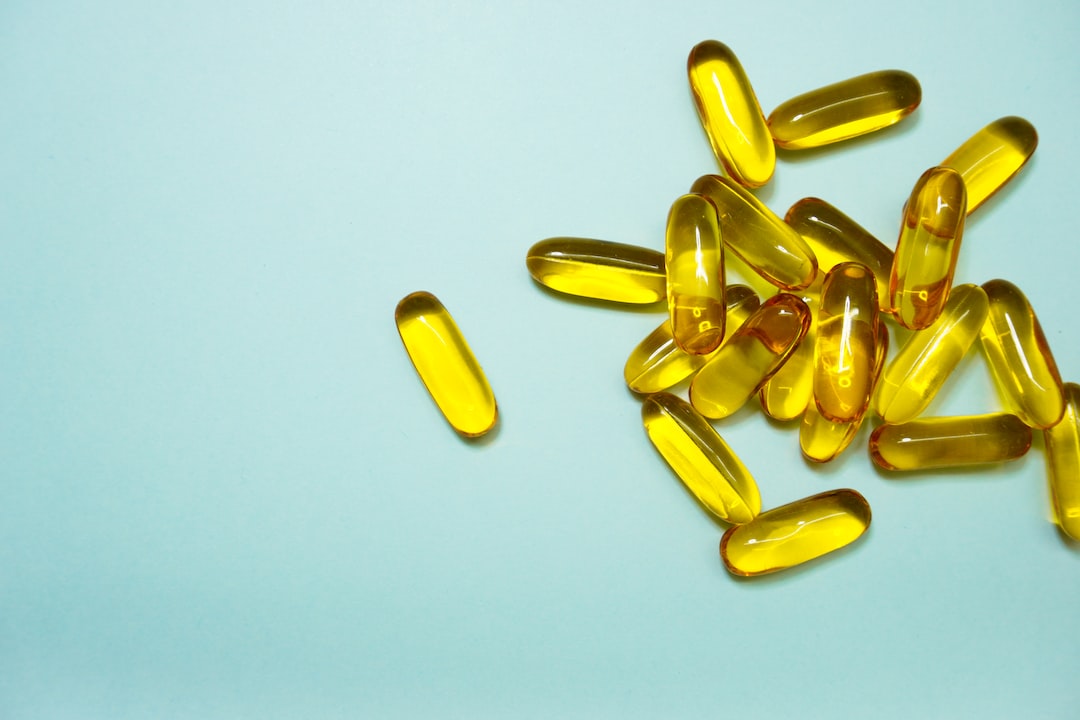Are you looking to improve your fertility and wondering how much CoQ10 you should take?
CoQ10 is a nutrient found naturally in the body that plays an important role in reproduction.
It’s been suggested that taking higher levels of this vitamin may help with improving egg quality, increasing sperm count, and even potentially helping women get pregnant faster.
But what exactly is CoQ10, how much do you need for fertility purposes, are there any potential side effects from taking too much of it, where can you find high levels of it naturally or through supplements?
In this blog post we’ll be discussing all these questions regarding “much coq10 for fertility” so keep reading to learn more.
What is CoQ10?
CoQ10, or coenzyme Q10, is an important nutrient found in the body that helps to regulate energy production and cell growth.
It’s also a powerful antioxidant that can help protect cells from damage caused by free radicals. While CoQ10 is naturally produced in the body, it can be supplemented through dietary sources such as foods and supplements.
Potential Side Effects of Taking Too Much CoQ10
Taking too much CoQ10 can have some potential side effects.
It is important to understand the recommended dosage for your individual needs and not exceed it. Too much of this supplement can lead to an upset stomach, nausea, diarrhea, headaches, fatigue, dizziness and rashes.
It is also possible that taking too much CoQ10 could cause a drop in blood pressure or interfere with certain medications you may be taking. If you are on any prescription medication or have a medical condition such as high blood pressure or diabetes, it is best to consult with your doctor before starting any supplement regimen including CoQ10.
In addition to these physical symptoms, there are other potential risks associated with taking too much CoQ10. High doses of this supplement may increase the risk of bleeding due to its effect on platelet aggregation which helps form clots in the body when needed. Therefore if you take anticoagulants like warfarin (Coumadin) or aspirin it’s important to talk with your doctor about how adding CoQ10 into your diet might affect them both together and individually.
Foods That Contain High Levels of CoQ10
It’s found naturally in the body, but certain foods can also provide a boost of this powerful antioxidant.
Here are some of the best sources of CoQ10 to help you get your daily dose:
Organ Meats
Organ meats like liver, heart, and kidney are all excellent sources of CoQ10.
These types of meat contain high levels of vitamins A, B12, iron, and zinc as well as CoQ10.
Fish
Fish such as salmon, mackerel, sardines and tuna are all great sources of omega-3 fatty acids which have been linked to improved fertility outcomes in both men and women.
Additionally they’re packed with protein and other essential nutrients including CoQ10.
Nuts & Seeds
Nuts such as almonds and walnuts contain high amounts of healthy fats that can help improve reproductive health while providing a good source for CoQ10 too.
Seeds like pumpkin seeds or sunflower seeds are also rich in antioxidants including CoQ10 along with other beneficial minerals like magnesium which helps regulate hormones related to reproduction.
Eggs
Eggs offer up plenty of protein plus choline which is important for brain development during pregnancy – not to mention it’s another great source for CoQ10.
If you’re looking for an easy way to add more eggs into your diet try making hard boiled eggs ahead time so they’re ready when hunger strikes.
Oysters and shellfish
Oysters and shellfish may come to mind when thinking about fertility since they are known aphrodisiacs, but did you know they are also full of zinc? This mineral helps support sperm production in men while boosting egg quality in women.
Additionally, oysters contain plenty of vitamin B12 which supports energy along with a hefty dose of CoQ10. Other shellfish like clams or mussels offer similar benefits so don’t forget them either.
Eating foods high in CoQ10 can be a great way to increase your fertility, but it’s important to remember that there are other sources of this nutrient as well. Let’s take a look at supplements and other ways you can get more CoQ10 into your system.
Supplements and Other Sources of CoQ10
CoQ10 is a powerful antioxidant found naturally in the body that plays an important role in energy production.
It can also be taken as a supplement to support fertility, heart health, and other conditions.
While CoQ10 is produced by the body, levels may decline with age or due to certain medical conditions.
Taking supplements of CoQ10 can help restore these levels and provide additional benefits for overall health.
CoQ10 is available in various forms on the market. Ubiquinone, derived from yeast fermentation or chemical synthesis, has been used clinically since 1978 and is the most common form.
Other options include ubiquinol (the reduced form of ubiquinone) as well as nano-emulsified versions such as Qunol Mega CoQ10 Softgels or Natrol High Absorption Liquid Softgels which boast higher absorption rates than traditional tablets or capsules.
Foods such as beef liver, sardines, mackerel, herring, spinach and broccoli contain small amounts of CoQ10 but it can be difficult to get enough through diet alone; therefore supplementation may be necessary if you wish to increase your intake significantly.
Supplements come in various doses ranging from 30mg up to 200mg per day depending on individual needs; however it is recommended that one consult with their doctor before taking any new supplements especially if they have existing medical conditions or take medications regularly as some drugs may interact negatively with high doses of CoQ10 including statins (used for cholesterol management).
In addition to dietary supplements there are topical creams containing coenzyme Q- 10 that claim to reduce wrinkles when applied directly onto skin; however there hasn’t been much research into this area yet so more studies need to be done before we know whether they actually work or not.
Finally there are also injectable forms available although these should only ever be administered by a qualified healthcare professional under strict supervision due their potential side effects if taken incorrectly.
Overall, it is evident that there are numerous ways to increase your intake of coenzyme Q-10. This can be done through dietary sources such as fish and vegetables or by taking dietary supplements and topical creams. However, before making any changes, it is important to consult with a doctor first.
FAQs in Relation to How Much Coq10 for Fertility
How much CoQ10 does a woman need for fertility?
The recommended daily dose of CoQ10 for women trying to conceive is between 200-400mg per day. It’s best to take the supplement with food, as this will help your body absorb the nutrients more effectively.
Additionally, it’s important to consult a doctor before taking any supplements while trying to conceive, as some may interact with other medications or treatments you may be undergoing.
CoQ10 can be a great addition to your fertility plan, but it’s important to speak with your doctor before starting any supplement regimen.
How much CoQ10 should you take for egg quality?
CoQ10 is an antioxidant that has been shown to improve egg quality and fertility in women.
The recommended dosage for improving egg quality varies depending on the individual, but a typical dose ranges from 200-400mg per day.
It’s important to consult with your doctor before taking any supplement, as CoQ10 can interact with certain medications and may not be suitable for everyone.
Additionally, it’s important to note that CoQ10 may take several months before any noticeable improvement in egg quality is seen.
How long does it take for CoQ10 to work for egg quality?
Studies have shown that taking CoQ10 can increase the number of healthy eggs produced, as well as improve their overall quality.
While results may vary from person to person, it typically takes between 3-6 months for CoQ10 supplementation to show an improvement in egg quality.
However, some women have reported seeing positive changes within just a few weeks of starting their supplement regimen. It’s important to note that while CoQ10 can be beneficial for improving egg health and fertility, it should not be used as a substitute for medical advice or treatment.
How much CoQ10 should I take for implantation?
The optimal dosage of CoQ10 for implantation is not known. However, studies suggest that taking between 200 and 400 mg per day may be beneficial in improving fertility and increasing the chances of successful implantation. It is important to speak with your doctor before starting any supplement regimen as individual needs vary. Additionally, it is recommended to take a high-quality CoQ10 supplement that contains natural ingredients and has been tested for purity and potency.
Summary
Taking the right amount of CoQ10 can help improve your chances of conceiving, but it’s important to be aware that taking too much may cause side effects.
Eating foods high in CoQ10 or taking a supplement are both good ways to get enough of this essential nutrient without having to worry about getting too much.
If you’re considering adding CoQ10 into your fertility plan, make sure you talk with your doctor first so they can recommend how much coq10 for fertility is best for you.
Are you looking for information on how to increase your fertility? CoQ10 is a powerful antioxidant that can help support reproductive health and optimize egg quality.
Taking the right amount of CoQ10 daily has been shown to improve ovulation, reduce infertility symptoms, and even reverse some causes of infertility. So if you’re trying to conceive or just want better overall reproductive health, make sure you are taking the proper dosage of CoQ10!
References, Studies and Sources:

Owner, entrepreneur, and health enthusiast.
Chris is one of the Co-Founders of PregnancyResource.org. An entrepreneur at heart, Chris has been building and writing in consumer health for over 11 years. In addition to PregnancyResrouce.org, Chris and his Acme Health LLC Brand Team own and operate Diabetic.org, Pharmacists.org, and the USA Rx Pharmacy Discount Card powered by Pharmacists.org.
Chris has a CFA (Chartered Financial Analyst) designation and is a proud member of the American Medical Writer’s Association (AMWA), the International Society for Medical Publication Professionals (ISMPP), the National Association of Science Writers (NASW), the Council of Science Editors, the Author’s Guild, and the Editorial Freelance Association (EFA).
Our growing team of healthcare experts work everyday to create accurate and informative health content in addition to the keeping you up to date on the latest news and research.

